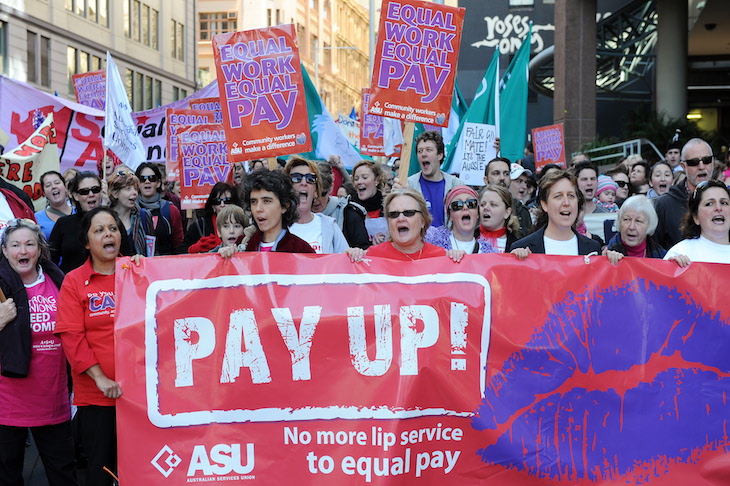Is diversity training snake oil? According to its proponents, women and minorities are not competing with white men on a level playing field when it comes to career advancement because of the ‘unconscious bias’ of their white male colleagues. The solution, if you’re the CEO of a large company, is to pay a ‘diversity consultant’ to train your managers to recognise and eliminate this bias. In America, it’s an $8-billion-a-year industry, yet a recent study in Australia suggests that, whatever is holding back women and minorities, it isn’t unconscious bias.
The Behavioural Economics Team of the Australian government has just published the results of a randomised control trial involving 21,000 employees of the Australian Public Service to see if the introduction of ‘blind recruiting’ would help promote gender equality and diversity. The employees were asked to shortlist candidates for a managerial position, with half of them being given their names and other identity markers and the other half not. If these public servants were suffering from unconscious bias, you would expect the ‘blindfolded’ group to be more likely to shortlist female and minority candidates and less likely to shortlist white men. In fact, the reverse happened.
The participants in the study were 2.9 per cent more likely to shortlist female applicants and 3.2 per cent less likely to shortlist male applicants when their identities were made clear. Minority males were 5.8 per cent more likely to be shortlisted and minority females 8.6 per cent more likely when their identities were known, and candidates who were lucky enough to be both female and from a minority background were virtually guaranteed a job.
The APS employees were suffering from bias all right, but it was bias in the other direction. It was only when the participants were forced to judge the job applicants on their merits, rather than gender or skin colour, that the white males got a fair shout.
Is this study an outlier? Surely, an $8 billion-a-year industry couldn’t be based on complete hokum, could it? Unconscious bias, also known as ‘implicit bias’, was first detected 20 years ago by two psychologists who developed the ‘implicit association test’. Versions of this are used in nearly all diversity training courses, but the original, which has its own shrine on Harvard University’s website, has been taken more than 17 million times. Trouble is, it falls short of the standards that widely used psychological tests are expected to meet — and that’s a pretty low bar in a field teeming with snake-oil salesmen.
The original test asks people to react to words and images flashing up on a computer screen by hitting keys equating to ‘good’ and ‘bad’. It gets quite complicated, but the gist of it is you’re asked to hit ‘good’ when you see a black face and words and images associated with blackness, ‘bad’ when you see the white equivalent, and then you’re asked to do the opposite, and then go back to what you were first asked to do, and so on. Turns out that over the course of the test most white people take longer to associate black with ‘good’ than white. Now, common sense tells you the white participants are terrified of being labelled politically incorrect so take longer to get it right when there’s a black face on the screen. But according to the test’s architects, what this really reveals is that white people are screaming racists. (Similar tests are used to establish sexism, homophobia, transphobia, etc.)
There are plenty of other reasons to doubt the validity of the test. For one thing, when people take it more than once, their scores are often wildly different — so you might be a little bit racist one day, but a lot racist the next. In addition, the evidence showing a correlation between a high score and racial discrimination is sketchy at best. There’s a long-running dispute about this in the Journal of Personality and Social Psychology, with critics of the test pouring scorn on its defenders. In one particularly tortuous bit of reasoning, the test’s proponents cited a study showing white people being nice to black people as evidence of unconscious bias. They were ‘overcompensating’, apparently.
I’m getting some of this info from a brilliant article in New York magazine by Jesse Singal entitled ‘Psychology’s favourite tool for measuring racism isn’t up to the job’. Next time your boss suggests you undergo diversity training, tell her to read it.







Comments